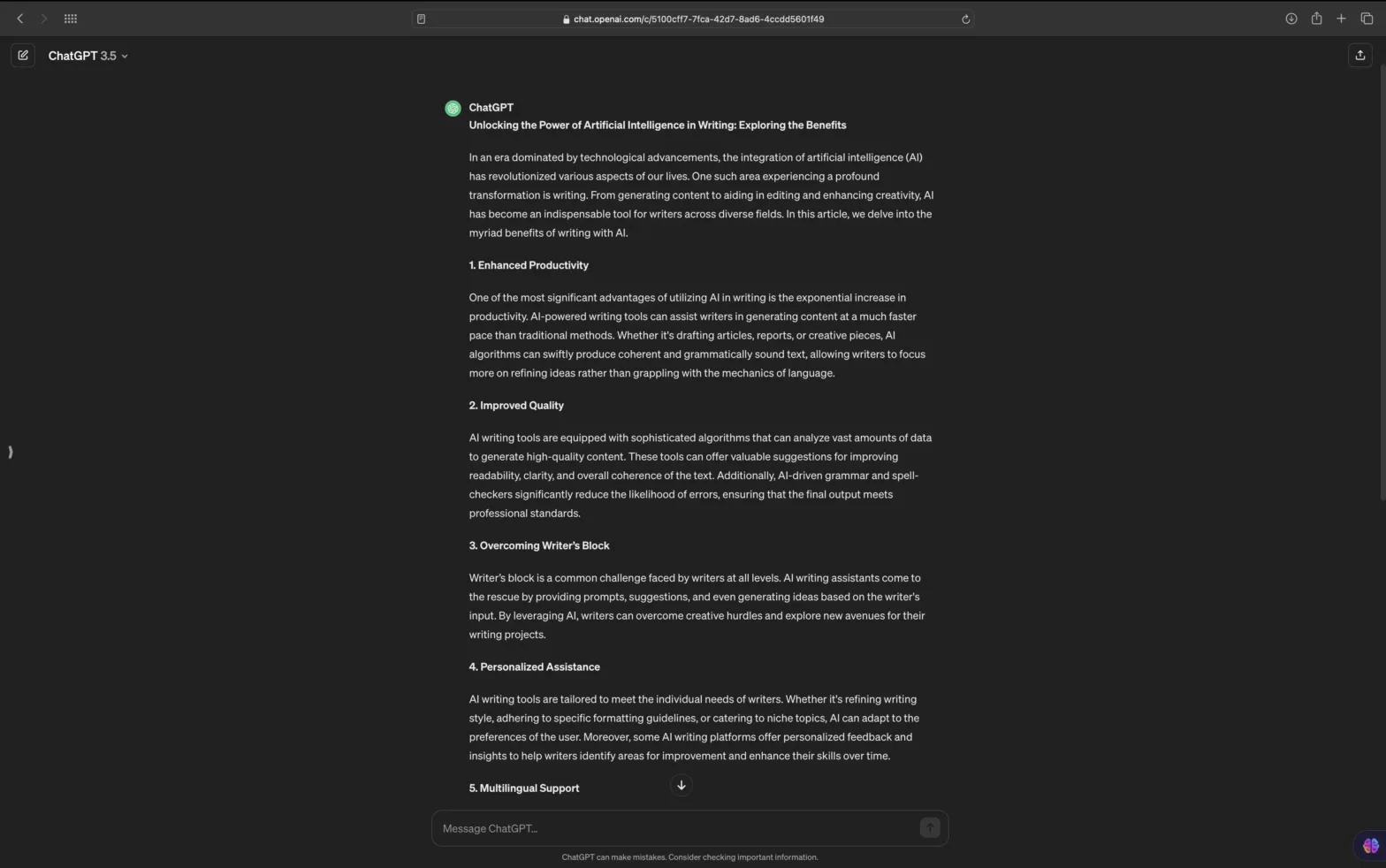A writer led a team of 60. Piece by piece, his team was replaced by ChatGPT and his job became to humanize the AI’s text.
In early 2023, a writer (pseudonym Miller) led a team of 60 writers for a tech company. Their job was to prepare content on various topics. With the onset of AI, Miller’s manager had a new project where AI will generate the outlines for these blog posts and articles, and the writers will do copywriting within the constraints of that outline. This was an automated system where he only had to plug in the headline and then ChatGPT will do the outline, only leaving the team with minimal work.
So far, so good. AI is making life easier for everyone. Miller’s job was to do a final edit before publishing.
But fast forward a few more months and the automation was amped up even more. Now, ChatGPT will write the article in its entirety. The majority of Miller’s team was fired. The few people that remained had to edit ChatGPT’s text to make it sound more human. Finally, the rest of the team was laid off by 2024.
Now, Miller’s job is to review ChatGPT-generated text and get rid of generative AI’s formulaic mistakes, dull tone, and possibly infuse the copy with character and personality.
I had a partner for a website project that never took off. In early 2023, he had developed a similar tool. These tools use the ChatGPT API to send prompts and receive responses. You can easily make a tool that can create outlines, then write each section created through the outline. You can also fine-tune them on custom data, change the tone they write in with further prompting, and so on. In fact, getting GPT-4 or Gemini Ultra to write human-sounding text isn’t difficult, you just need to do a little experimentation with your prompts.
Today, of course, there are countless tools as well. If you cannot program a tool like on your own and want more control and flexibility over what the vanilla ChatGPT or Gemini experience is, you can use these tools. Just give them headlines or keywords (which, in turn, can also be generated by AI), and a full blog post with subheadings is at your disposal in a few minutes.
Miller’s story was first published on BBC on anonymity. In his coverage of the story, The Byte writer Frank Landymore says, “across the industry, being an AI fixer-upper has quickly become a dominant new form of grunt work.” I 100% agree – having been in the copywriting industry for the past 9 years myself. The impact generative AI has had on copywriting is insane. It has also carved out a market of its own – the market of project heads looking for non-AI content. They want real human experts crafting copy for them, but the demand is the same as it was a couple of years ago, whereas the market has been taken in part by these AI tools, leaving a lower number of clients to go around that actually want human writers.
With time, people have also learned to do better prompting to generate text that sounds more like a human. You can have the AI pretend it’s a famous writer, or explain the tone you want. You can ask it to be more casual, add humor, have more perplexity and burstiness, and so on. Ultimately, you will arrive at the intended tone. The best part? It won’t be flagged by AI detectors (and they are grossly incompetent, to begin with).
Well, the trajectory isn’t positive. A lot of people in my content writing network are scared out of their wits. A lot of these are people who have content agencies working with clients from all niches and with the biggest brands in the world. They have started to see lower orders throughout 2023 and 2024.

